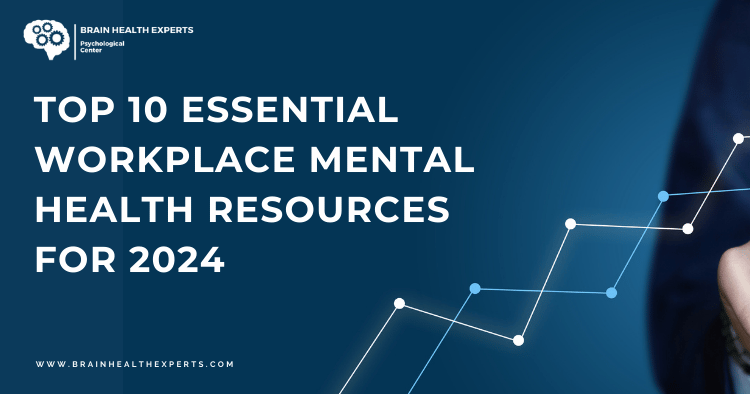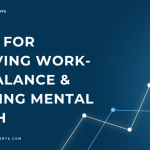Table of Contents
- Understanding Workplace Mental Health
- Employee Assistance Programs (EAPs)
- Mental Health Apps
- Wellness Workshops
- Flexible Work Arrangements
- Peer Support Programs
- Mental Health First Aid Training
- Online Therapy Services
- Mindfulness and Relaxation Resources
- Mental Health Policies and Guidelines
Understanding Workplace Mental Health
Workplace mental health refers to the psychological well-being of employees within their work environment. A healthy workplace fosters a culture of support, allowing employees to thrive both personally and professionally. According to the World Health Organization, mental health is a state of well-being in which individuals realize their abilities, can cope with the normal stresses of life, work productively, and contribute to their community.
“A healthy workplace is not just about the absence of illness; it’s about the presence of well-being.”
In 2024, creating a supportive workplace is more crucial than ever. Research indicates that mental health issues cost employers billions in lost productivity and increased absenteeism. Fortunately, various resources are available to help organizations support their employees’ mental health.
Employee Assistance Programs (EAPs)
Employee Assistance Programs (EAPs) are employer-sponsored programs designed to help employees deal with personal problems that might adversely impact their work performance, health, and well-being. EAPs typically offer confidential counseling services, legal assistance, and financial advice.
Benefits of EAPs:
- Confidential Support: Employees can seek help privately without fear of stigma.
- Comprehensive Services: EAPs address a range of issues, from stress and anxiety to relationship problems.
- Prevention and Education: Many EAPs provide resources to help prevent mental health issues before they escalate.
For more information about EAPs, check out the National Alliance on Mental Illness (NAMI).
“An EAP is like a safety net for employees, catching them before they fall too far.”
Mental Health Apps
In the digital age, mental health apps have become an essential tool for self-care. These apps offer various features, including mood tracking, guided meditations, and cognitive behavioral therapy exercises.
Popular Mental Health Apps:
| App Name | Features | Platform |
|---|---|---|
| Headspace | Guided meditations, sleep aids | iOS, Android |
| Calm | Meditation, sleep stories | iOS, Android |
| Woebot | AI chatbot for cognitive behavioral therapy | iOS, Android |
| Talkspace | Online therapy with licensed therapists | iOS, Android, Web |
These apps provide users with immediate resources at their fingertips, making mental health management more accessible than ever.
“In a world full of distractions, mental health apps can be a focused path to well-being.”
Wellness Workshops
Organizing wellness workshops can significantly boost employee morale and mental health awareness. These workshops can cover various topics, such as stress management, resilience building, and work-life balance.
Benefits of Wellness Workshops:
- Interactive Learning: Employees can engage in discussions and activities that deepen their understanding of mental health.
- Community Building: Workshops foster a sense of camaraderie among employees, creating a supportive work culture.
- Skill Development: Employees gain practical tools to manage their mental health effectively.
Consider partnering with external wellness experts or organizations to provide high-quality workshops, as discussed in 10 effective stress management strategies for workplace.
“Workshops are not just events; they are opportunities for connection and growth.”
Flexible Work Arrangements
Flexible work arrangements, including remote work options and flexible hours, can significantly enhance employees’ mental well-being. The ability to balance work and personal commitments reduces stress levels and increases job satisfaction.
Benefits of Flexible Work:
- Reduced Commuting Stress: Eliminating the daily commute saves time and lowers anxiety.
- Improved Work-Life Balance: Employees can manage personal responsibilities alongside work tasks.
- Increased Autonomy: Flexibility empowers employees to take control of their work environment.
Employers should consider implementing policies that allow for flexible schedules, remote work options, and job-sharing arrangements, reflecting insights from studies on the benefits of workplace flexibility.
“Flexibility in the workplace can transform the employee experience from stressful to manageable.”
Peer Support Programs
Peer support programs create an environment where employees can connect with each other to share experiences and provide mutual support. These programs can be formal or informal, offering a safe space for employees to discuss mental health challenges.
Benefits of Peer Support:
- Shared Experiences: Employees can relate to one another’s struggles, fostering empathy and understanding.
- Reduced Stigma: Normalizing conversations about mental health encourages more employees to seek help.
- Community Building: Peer support strengthens workplace relationships and teamwork.
Consider establishing a peer support network within your organization to enhance mental health awareness and services.
“When we share our stories, we create a tapestry of support and understanding.”
Mental Health First Aid Training
Mental Health First Aid (MHFA) training equips employees with the skills to recognize and respond to signs of mental health issues. This training helps create a more informed and supportive workplace.
Benefits of MHFA Training:
- Increased Awareness: Employees learn about various mental health conditions and how to approach someone in distress.
- Immediate Support: Trained employees can provide initial help until professional assistance is available.
- Promotes a Supportive Culture: MHFA training fosters a workplace culture that prioritizes mental well-being.
For more information about MHFA, visit Mental Health First Aid USA.
“Mental Health First Aid is like CPR for the mind; it saves lives by promoting understanding and support.”
Online Therapy Services
Online therapy services have gained popularity as they offer accessibility and convenience for those seeking mental health support. With licensed therapists available through video calls, chat, or phone, employees can receive therapy without the barriers of traditional in-person appointments.
Benefits of Online Therapy:
- Convenience: Employees can schedule therapy sessions around their work commitments.
- Anonymity: Online services can reduce the stigma associated with seeking help.
- Wide Range of Options: Employees can choose therapists who specialize in their specific needs.
Platforms like BetterHelp and Talkspace are excellent resources for online therapy.
“Online therapy is breaking down barriers, making mental health support as close as your phone.”
Mindfulness and Relaxation Resources
Incorporating mindfulness and relaxation techniques into the workplace can significantly enhance employee mental health. Resources such as guided meditation sessions, yoga classes, and relaxation apps can help employees manage stress. Explore 10 mindfulness practices to reduce stress effectively for practical techniques.
Benefits of Mindfulness Practices:
- Stress Reduction: Mindfulness practices have been shown to reduce anxiety and enhance emotional regulation.
- Improved Focus: Regular mindfulness practice can lead to increased concentration and productivity.
- Enhanced Well-being: Mindfulness contributes to overall emotional health and resilience.
Employers can offer mindfulness resources or host regular mindfulness sessions to encourage employees to engage with these practices.
“Mindfulness in the workplace is like a breath of fresh air in a crowded room.”
Mental Health Policies and Guidelines
Establishing clear mental health policies and guidelines demonstrates a company’s commitment to supporting employee well-being. These policies should outline available resources, support systems, and procedures for handling mental health concerns.
Key Elements of Effective Policies:
- Confidentiality Assurance: Employees should know their information will be kept private.
- Support Resources: Clearly outline available mental health resources, including EAPs and therapy options.
- Crisis Management Guidelines: Provide clear steps for employees to take in a mental health crisis.
Make sure to communicate these policies regularly and ensure that all employees understand their rights and available resources.
“Effective mental health policies are the foundation of a resilient workplace.”
FAQs
Q: Why is workplace mental health important?
A: Workplace mental health is crucial because it impacts employee productivity, engagement, and overall company culture. Investing in mental health resources can lead to reduced absenteeism and increased job satisfaction.
Q: How can I promote mental health in my workplace?
A: You can promote mental health by offering resources such as EAPs, mental health apps, wellness workshops, and flexible work arrangements. Creating an open culture where employees feel comfortable discussing mental health is also essential.
Q: What should I do if I or a colleague is struggling with mental health issues?
A: It’s important to seek help. Approach your HR department or utilize





